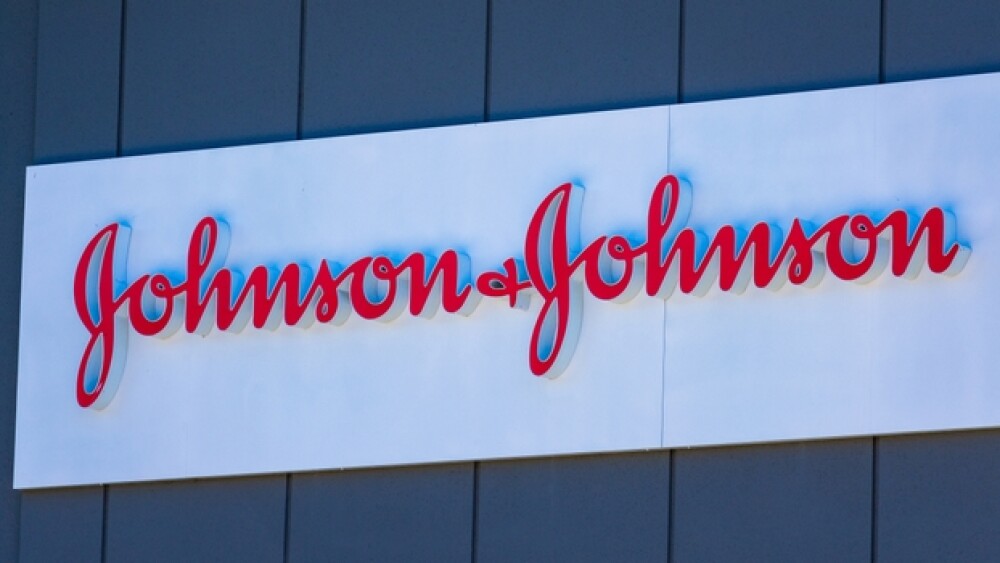The FDA has greenlit the use of Johnson & Johnson’s Tecvayli in heavily pretreated adult patients with relapsed or refractory multiple myeloma.
Courtesy of Michael Vi/Getty Images
The FDA has greenlit the use of Johnson & Johnson’s Tecvayli (teclistamab-cqyv) in heavily pretreated adult patients with relapsed or refractory multiple myeloma, J&J announced Tuesday.
This decision makes Tecvayli the first off-the-shelf bispecific T-cell engager antibody approved for this indication and marks J&J’s fourth approval in multiple myeloma. Tecvayli can now be used to treat patients treated with at least four prior lines of therapy, including an anti-CD38 monoclonal antibody, a proteasome inhibitor and an immunomodulatory drug.
Tecvayli is a first-in-class subcutaneous bispecific T-cell engager that addresses multiple myeloma by binding to the CD3 receptor, found on the surface of T cells, and to the B-cell maturation antigen (BCMA), which malignant cells display.
The drug earned its nod under the FDA’s accelerated approval pathway based on data from the Phase II MajesTEC-1 trial. In 110 patients, Tecvayli returned an overall response rate of 61.8%, while nearly 30% of participants reached a complete response or better. The first treatment response occurred at a median of 1.2 months from treatment initiation.
According to the results of MajesTEC-1, J&J estimates Tecvayli to have a duration of response rate of 90.6% at the 6-month follow-up. This dropped to 66.5% by 9 months.
MajesTEC-1 is a Phase I/II single-arm, open-label and multicohort study. The first phase assessed the safety, tolerability and pharmacokinetics of Tecvayli. Efficacy was evaluated in the second phase, which used a subcutaneous 1.5 mg/kg dose of Tecvayli.
All enrolled patients were heavily pretreated, with 78% having received at least four prior lines of therapies. All MajesTEC-1 participants had been exposed to the three major classes of drugs: a proteasome inhibitor, an anti-CD38 monoclonal antibody and an immunomodulatory agent. Nearly 80% were also refractory to these drug classes.
Tecvayli’s label bears safety warnings for cytokine release syndrome, neurologic toxicities and other precautions for infections, hypersensitivities, neutropenia and hepatotoxicity.
In MajesTEC-1, the most common side effects included cytokine release syndrome, pyrexia and upper respiratory tract infection. Adverse events in grade 3 or 4 included lowered lymphocytes, neutrophils and white blood cells.
J&J’s Winning Streak in Multiple Myeloma
Tecvayli is J&J’s second multiple myeloma win this year. In March, the pharma giant, along with partner Legend Biotech, announced the FDA’s approval of Carvykti (ciltacabtagene autoleucel), its CAR-T therapy for multiple myeloma.
As in the case of Tecvayli, Carvykti was approved for heavily pretreated patients relapsed or refractory disease; only those who had had at least four prior lines of therapy were eligible to receive the CAR-T drug. Carvykti also targets The BCMA, and in the CARTITUDE-1 studies, it showed a 98% deep and durable response rate, with 78% of treated patients meeting a stringent complete response threshold, showing no detectable levels of cancer cells.
J&J also owns Darzalex (daratumumab) and Darzalex Faspro (daratumumab and hyaluronidase-fihj), both indicated for multiple myeloma.






